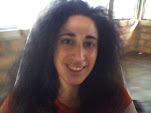Y.* Public Library has a copy of The Clan of the Cave Bear; I officially am dedicated to a two year service here. This discovery, along with a few others this morning has convinced me I am in the spot for me. Upon arrival yesterday, the developed state of Y intimidated me. (Well, still does, just to a far lesser degree). This village has a gorgeous set up of structures – guest houses, library, kitchen/dining hall and already existing organizations that the community is a part of. These wonderful structures belong to the Cayman Research Center and Rupununi Learners – two organizations established in 2004 with the actions and motivations of an American woman, Alice, and her family. Though she’s no longer in country, the organizations are Y-ran.
What the heck could I do here? I felt pretty inferior and uncomfortable. And scared, I admit. (Still do, though less than before). This morning, though, I got to talk with Alice online (very fun) and was completely calmed with a few sentences from her. She said, “It’s about a PROCESS, not a product. We are asking you to engage a process; don’t worry about products, about “producing.” The products will evolve from the process. All you have to do is “BE and SEE.” Words that went straight to the soul. It’s a statement I’d hear out of Dad’s mouth, or my own even, in different contexts. I am the Queen of Being and Seeing. It seems what she/they are (primarily) requesting is a person with the characteristics I possess; no need to fret over skills right now.
Alice gave me the link to the LR website - www.rupununilearners.org - and it was there that all my qualms were soothed. I better understood what the Cayman Research Center was and what the people were doing there. I read about their efforts in literacy, saw the programs initiated and challenges to progress. I could envision the Peace Corps process fitting in with all of this work, and I could envision myself working alongside these people. It’s going to be a challenge, but I am officially stoked for it. How’s that for positive attitude?
Some of the “opportunities” noted in the website were: The Cayembe Telegraph, a newsletter for Y-ians. I met one of the frequent editors of the newsletter, Shamir, yesterday. There are two RPCV’s on the Rupununi Learners Foundation board, which is the American counterpart to the Rupununi Learners Incorporation. Those two will be great resources to get help from. The Makushi Research Unit is working on a Makushi English Dictionary. Makushi is the native language spoken in the area and is (unfortunately) not much of a written language. This is the first generation working on recording the language. Many students (and parents) are learning English as a second language, not first. A multi-media phonics program was attempted for the students and teacher as well as an effort to make read-aloud tapes to aid in student and teacher story telling. Then there’s resources like in the eco-tourism here (a woman with otters at a glorious ranch) or the Reading Rodeo program they did once a couple years ago. I’m thinking a resurrection of the Rodeo is in the air).And a final opportunity – the library itself. There are so many books there to enjoy! Several I myself want to read and/or re-read. I’ll have a lot of resources to use and there is potential to enhance the library system, as well.
Some of the challenges noted which can give way to opportunities: the fact that English is a second language – Creolese English, at that – and that Makushi isn’t really written down. Plus the fact that I don’t know Makushi. Another challenge is improving the contact between school and home, well as village contact with the library. Communication must be increased. A few general challenges cautioned by many are the consumption of alcohol, and then, having to compromise between the fast-paced schedule of the US and the relaxed schedule of Guyana. I’ll really need to learn how to pace myself, yet not give into the relaxation completely.
The title of this post is a quote that comes from both my PM, Diana, and GUY19 PCV, Topher. Following this statement, Diana also reminded us that attitude is a big indicator of your success as a PCV. I have a feeling I will use the above mantra and attitude advice, and I will use it well.
*For the sake of "security", my village will be referred to as "Y" in all my posts.
